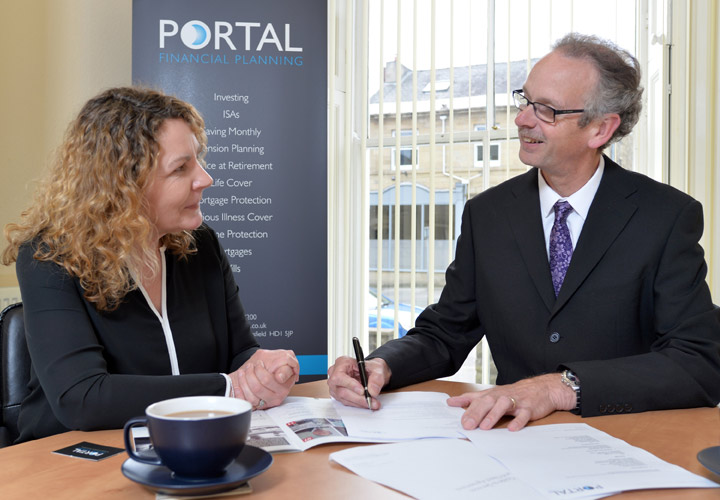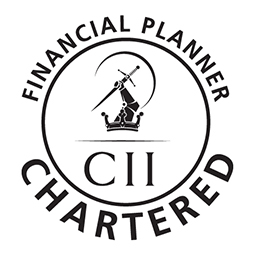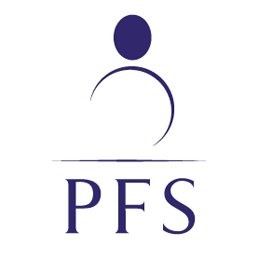Inheritance Tax Planning

Inheritance Tax Planning
If IHT could be an issue for you, we’ll help you navigate around the complexities of the tax and find the right solution for you.
What is inheritance tax?
IHT is the tax your beneficiaries may have to pay if your estate (that is, everything you own) is above a certain size. You can leave up to £325,000 to your beneficiaries tax-free – this is known as the IHT nil-rate band. Everything about that threshold will be taxed, usually at the rate of 40 per cent. For large estates, this can result in a very substantial bill.
What about my family home?
There’s now an extra IHT allowance, called the main residence nil-rate band. Set at £125,000 from April 2018, this tops up your £325,000 if you pass a ‘primary residence’ (i.e. your main or only home) on to your children or grandchildren. By 2020 it will be £175,000, meaning a couple could leave up to £1,000,000 of assets tax-free to their children if this includes the family home.
Who pays inheritance tax?
If you have a will, the named executor will be responsible for arranging the tax payment to HMRC. If you don’t have a will, the administrator of your estate will do this instead.
The tax payment is usually made from the funds within the estate (or from money raised by selling assets within the estate). After inheritance tax has been paid, the remaining value of the estate is distributed.
A common challenge is that HMRC requires IHT to be paid within six months, but probate (the process of releasing assets from an estate) often takes longer than that. Also, probate isn’t usually granted until IHT has been paid, which can seem like a catch-22. Talk to your financial adviser about how to handle this step, as there are a number of solutions.
How do I go about inheritance tax planning?
If you leave your entire estate to your spouse or civil partner, they won’t have to pay inheritance tax. There are also exempt beneficiaries, such as charities, who won’t be taxed on anything you leave to them.
There are various ways you can reduce the size of your taxable estate during your lifetime, such as by making gifts, setting up trusts, charitable giving and other forms of planning.
Wills
You may be surprised to learn that the first place to start is your Will and you can write your Will in a way that could reduce inheritance tax. By leaving your estate to your beneficiaries in the right amounts, you could protect them from the headaches associated with having to pay an inheritance tax bill.
If you’re married (or you and your same sex partner are registered as civil partners from 5 December 2005), the trick is to make good use of the nil rate band whilst you and your spouse are still alive. It may seem sensible to leave your estate to your spouse because no inheritance tax is payable on assets left to your husband or wife. However, you could just be delaying the inheritance tax problem, or even making it worse.
From 9th October 2007, it has been possible for spouses and civil partners to transfer their nil-rate inheritance tax band allowances so that any part of the nil-rate band that was not used when the first spouse or civil partner died can be transferred to the individual’s surviving spouse or civil partner for use on their death.
Using gifts
Any gift you give seven or more years before your death is exempt from IHT. However, you must be able to demonstrate that they are outright gifts – if you were to continue receiving rent from a second property, for instance, then it would be called a ‘gift with reservation of benefit’ and so would still be included as part of your estate, even after seven years. The same would apply if you ‘gave away’ your home but continued to live in it rent-free.
With smaller gifts you don’t have to worry about the seven-year rule. You can make up to £3,000 worth of gifts in any tax year, free of IHT. This allowance carries over to the next year, so if you haven’t used the past year’s allowance then a married couple could give away up to £12,000.
Other exemptions apply to wedding gifts – parents can give £5,000, grandparents £2,500 and anyone else can gift up to £1,000. Lastly, any gifts worth £250 or under made to any individual are exempt.
By planning with the help of an adviser, you can use these allowance to steadily reduce the size of your estate, and so reduce the taxable amount.
Using trusts
A trust allows you to set money aside to support a beneficiary in a certain way or at a certain time (such as to pay university fees). Trusts can be placed outside your estate, meaning they can be free of inheritance tax.
You can also set up a life insurance policy specifically to cover the IHT bill. If the policy pays into a trust that is outside your estate, the pay-out itself will not be taxed and can be used to pay HMRC.
Trusts are a specialist area, so be sure to consult a financial adviser first, and a solicitor when setting them up.
Example Trusts are:
- Discounted Gift Trusts
- Loan Trusts
- AIM Portfolios
- Enterprise Investment Schemes
These are just some of the ways of mitigating Inheritance Tax and we can help you find a suitable solution to your inheritance tax problem, taking into account your current and future needs. This is a highly specialised area of planning and should not be entered into without financial advice.
The Financial Conduct Authority does not regulate tax advice, trust advice or will writing services.
At Portal Financial Planning we believe in:
Independence
Independence in all its forms. Independence of thought, independence from product providers when recommending a product to a client, independence of the individual so that they are not manipulated or controlled by others. Also, striving to help others become financially independent, which in tomorrow’s increasingly economically driven world will be the only real guarantee of creating and retaining an independent lifestyle.
Wealth creation
creating and conserving wealth for our clients is one of our primary aims. This goes hand in hand with financial independence.
Honesty
this extends not only to our clients and employees, but also in the transparent way we deal with others.
Simplicity
we design and operate systems that are simple in their concept and delivery. Financial planning should be a good experience, which is easy to understand by the consumer, not a confusing and jargon-filled nightmare. This means using the right method to deliver financial planning, which we believe for the vast majority of people is via face to face impartial and independent advice.
Technology
using it to its maximum advantage, utilising the latest cutting edge software and processes to develop the best solutions for clients needs.
Contact Us today for Independent Financial Planning
Tel: 01484 599200 | info@portalfp.co.uk






